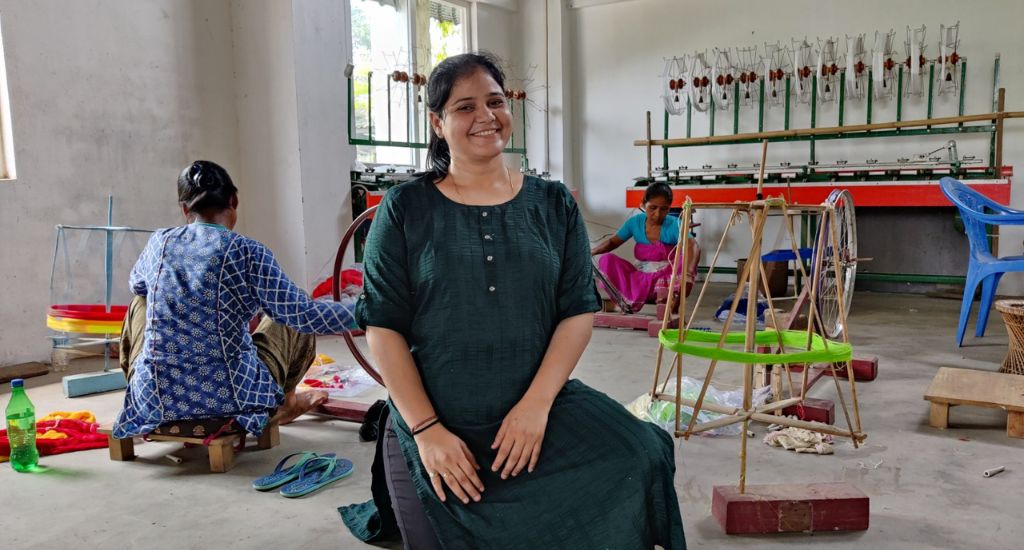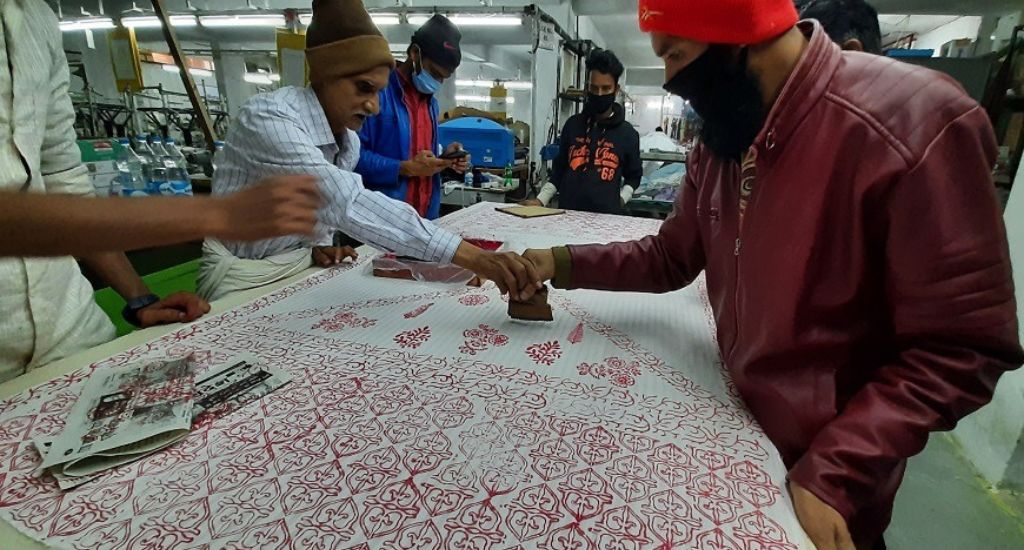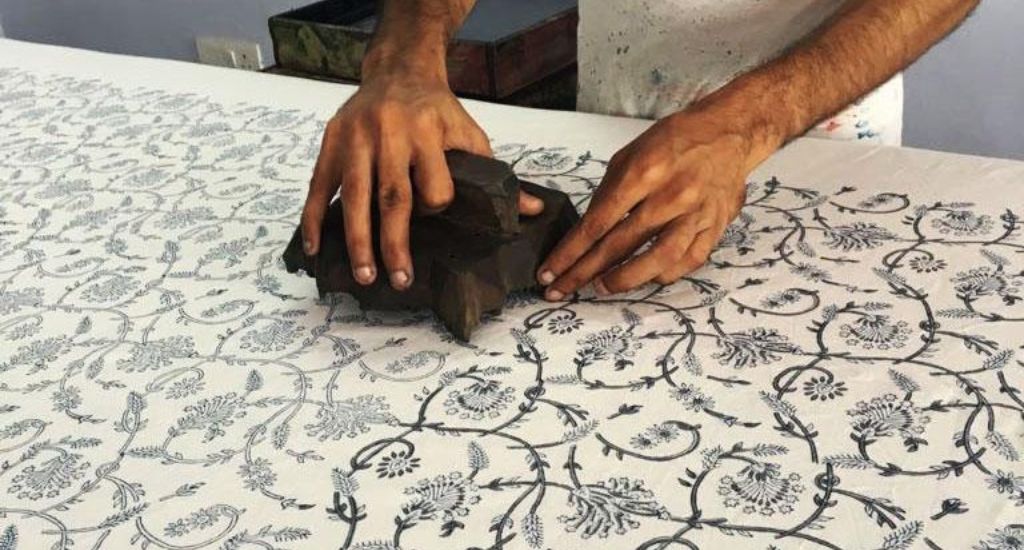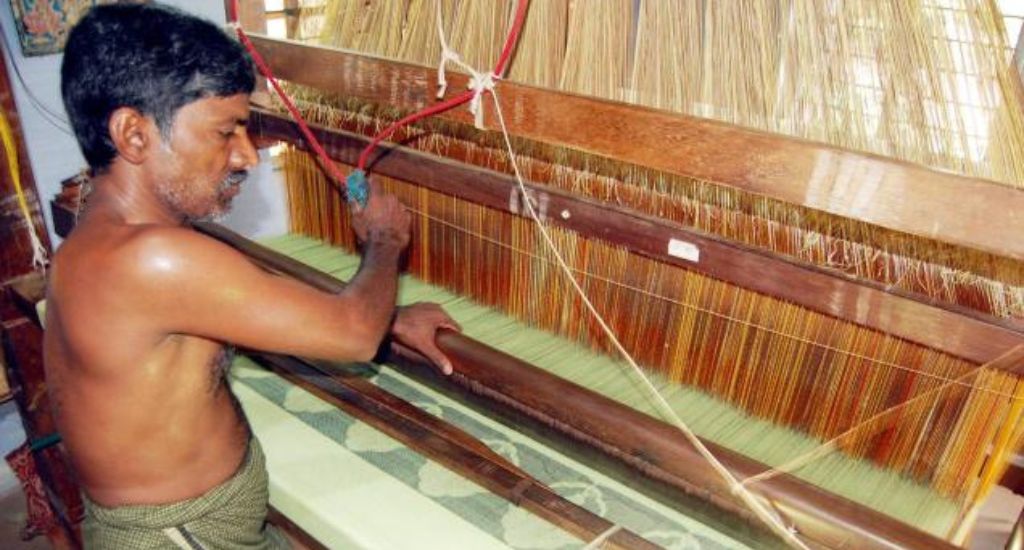
Meshing tech and rural crafts
Meenakshi Dubey, the founder of the online portal Yespoho and winner of the Union government’s Prajjwala Challenge, talks to us about how she uses technology to promote rural craftspersons.

Meenakshi Dubey, the founder of the online portal Yespoho and winner of the Union government’s Prajjwala Challenge, talks to us about how she uses technology to promote rural craftspersons.
Employed with the online shopping website Snapdeal as a college student, today Meenakshi Dubey, a self-professed middle-class girl, heads a Rs 12-crore net-profit venture. Dubey is among the five winners of the Union government’s Prajjwala Challenge, a distinction she earned for Yespoho, an e-commerce portal that sells merchandise produced by rural craftspeople.
“I never imagined I would helm such a business model,” Dubey said on the phone from Hyderabad. “It took shape after a chance meeting with Raghuram Kuchibhatla, who I later co-founded Yespoho with. He narrated his tale of woes about dealing with artisanal products from rural India, after which I became entranced by the idea of a virtual platform to sell such ware.”
Having worked with Snapdeal, Dubey was aware of the problems that customers face.

“We put our heads together in 2011, and by 2017, we conceived and launched Yespoho,” she said.
While many such portals deal in artisanal goods, the standout feature of Dubey’s venture is that it works for social good.
“Our target is that we want to uplift an artisan’s earnings by 20 to 25 percent,” she said.
To that end, Yespoho, which translates to mirror in Spanish, has set up 45 hubs in Uttar Pradesh, West Bengal, Bihar, Assam and Gujarat. These hubs work directly with the artisans who make handloom and handicraft goods sold on the portal. The company, which currently has 19 employees, provides six solutions to these craftspeople that simplify their operations.

The first is ‘Try Me’, an interactive feature that enables the producer to upload images of their wearable ware on Yespoho. Customers can superimpose these visuals on their own photographs to get an idea of how the merchandise looks on them. This feature promotes sales.
The second, ‘Create My Design’, allows customers to experiment with various fabrics, cuts and colours in an online format before settling for their final choice. The custom-made product, which can take up to 10 days to produce, is then parcelled to them.
“This way the producer does not need to stock up too much fabric and other material required to make a product. The virtual platform takes care of the various combinations that a customer may prefer,” explained Dubey.

There is also an interactive app wherein the buyer and producer communities can connect with each other regardless of what language they speak. Artisans are also given a market analysis, doing away with middlemen. They can access the portal in their native language and finally, there is transparency in prices being offered to the customer.
“Our solutions are mostly tech-based,” Dubey said, adding that artificial intelligence is used even for the content published on the website.

“We handhold the artisans in the modern ways of the world. From deploying AI for their benefit to teaching them the basics of GST if they don’t know, we want to make them independent and capable of selling their ware on other platforms as well,” she said.
The idea has turned out to be a commercial and logistical success, and Yespoho is looking for more funding to expand its operations.
The lead image at the top shows Meenakshi Dubey at a handicrafts hub run by Yespoho. (Photo courtesy Yespoho)
This is the first write-up in a series of articles featuring the winners of the Prajjwala Challenge, an initiative launched by the Ministry of Rural Development (MoRD) to look for ideas and solutions around innovative technologies, inclusive growth and enhanced women entrepreneurship, among others. It has been crafted by MoRD, with Transform Rural India (TRI) as a programme partner. The story is being published to highlight use of science and technology-based social impact innovation and solutions in India under Manthan, an initiative led by the Office of the Principal Scientific Adviser, Government of India.
Smriti Mukerji is a journalist turned freelance writer based out of New Delhi.